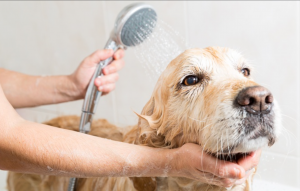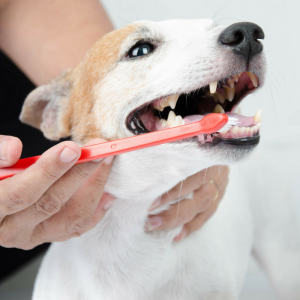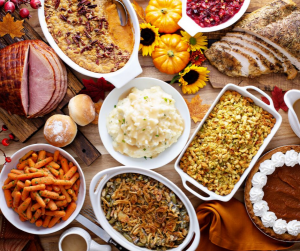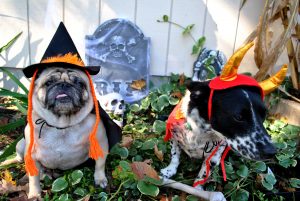When you bring a puppy or even an adult dog home for the first time, the idea of training probably means potty training. But after they chew up that pair of shoes and run-away off leash for the first time, you realize there is a bit more training you need to do. Here are a few things to consider when training your puppy or adult dog:
- Establish house rules for the dog. Just like your children have house rules so should your dog. Will you allow your dog on the couch when you are binging Netflix? Will they be allowed to sleep with you on the bed or in the crate in another room? It’s important to establish rules for the puppy or adult dog before they arrive so that everyone and your furry friend know what to expect.
- Find a Training Class. Most dog owners find puppy training classes a good idea. Depending on where you live, classes are typically held at a local dog training facility or pet supply store. There is a fee associated with these class so make sure to research the trainer before you register to ensure they have experience and excellent references. In the class, your puppy will typically learn basic commands such as sit, lie down, come, and stay and how to walk on leash.
- Start socializing early. When you bring home your puppy or adopted dog, getting them use to their surroundings and interacting with people is an important part of the training process. In some areas, you can even sign up for a puppy socialization class to help your puppy learn how to interact with other dogs and people. It’s important to do this as soon as possible to avoid any set-in fears and anxieties. If you have an adopted dog, you can socialize with frequent walks around the neighborhood, having people over, and taking them to a dog park.
- Reward good behavior. When your puppy or adult dog does the right thing, treats and praise help reinforce the behavior you expect. Dogs are people pleasers and want to please their owners. Positive praise helps build trust between you and your furry friend and ensures they develop into a confident, well-adjusted dog.
- Be patient. It can take three to four weeks of consistent training before it becomes a habit. With puppies, you need to exercise patience during the training process by implementing short training sessions every day. If you are bringing home an adult dog, they can be easier to train than young puppies as they can focus for a longer period to time.
- Give daily exercise. A bored dog tends to get itself into trouble. Daily exercise not only keeps your furry friend healthy but also helps provide needed mental stimulation while reducing common behavioral problems such as chewing, digging, and barking.
This article originally appeared on nutrinaworld.com.







 Keep in mind these Thanksgiving safety tips for pets during the holidays. Let’s make sure it’s not a dangerous time for your furry friend! Enjoy time with your family and avoid a visit to your veterinarian by following this guide:
Keep in mind these Thanksgiving safety tips for pets during the holidays. Let’s make sure it’s not a dangerous time for your furry friend! Enjoy time with your family and avoid a visit to your veterinarian by following this guide: